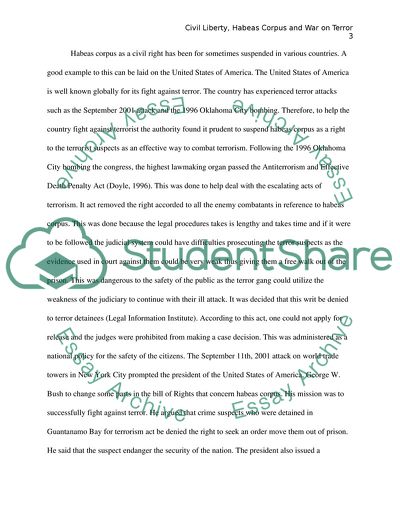Cite this document
(Civil Liberties, Habeas Corpus, and the War on Terror Term Paper - 2, n.d.)
Civil Liberties, Habeas Corpus, and the War on Terror Term Paper - 2. https://studentshare.org/politics/1816673-politics
Civil Liberties, Habeas Corpus, and the War on Terror Term Paper - 2. https://studentshare.org/politics/1816673-politics
(Civil Liberties, Habeas Corpus, and the War on Terror Term Paper - 2)
Civil Liberties, Habeas Corpus, and the War on Terror Term Paper - 2. https://studentshare.org/politics/1816673-politics.
Civil Liberties, Habeas Corpus, and the War on Terror Term Paper - 2. https://studentshare.org/politics/1816673-politics.
“Civil Liberties, Habeas Corpus, and the War on Terror Term Paper - 2”. https://studentshare.org/politics/1816673-politics.


